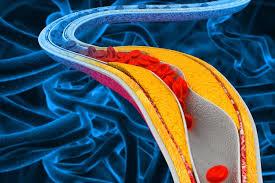The Atherosclerosis Drugs Market continues to play a crucial role in reshaping cardiovascular medicine by merging cutting-edge scientific research with a strong focus on patient-centered treatment. As atherosclerosis remains a leading cause of morbidity and mortality worldwide, the pharmaceutical industry is prioritizing innovation, accessibility, and long-term management strategies to improve patient outcomes. The evolution of drug classes, from traditional statins to novel biologics and RNA-based therapies, marks a transformative phase in cardiovascular healthcare.
Evolution of Therapeutic Approaches
Atherosclerosis has long been treated with statins, which effectively lower cholesterol and reduce the risk of cardiovascular events. However, persistent challenges such as statin intolerance, residual risk, and genetic lipid disorders have driven the search for newer and more effective treatment options. The current generation of drugs goes beyond cholesterol management to address inflammation, endothelial dysfunction, and plaque stabilization.
The market now includes advanced therapeutics like PCSK9 inhibitors, CETP inhibitors, and anti-inflammatory agents that specifically target the underlying molecular and cellular processes responsible for arterial damage. These drugs have demonstrated superior efficacy in clinical trials and are increasingly incorporated into combination therapy protocols.
Innovation Through Biotechnology
Biotechnology has become the cornerstone of modern drug development in the Atherosclerosis Drugs Market. Through advances in molecular biology and genetic engineering, researchers are now able to identify novel drug targets that were previously unapproachable using traditional chemistry-based methods.
Biologic therapies, particularly monoclonal antibodies, have emerged as promising agents due to their high specificity and ability to modify disease pathways. PCSK9 inhibitors such as evolocumab and alirocumab exemplify how biologics can achieve profound reductions in LDL cholesterol levels while maintaining a favorable safety profile.
Additionally, ongoing research into anti-inflammatory biologics targeting cytokines like IL-1β and IL-6 represents the next frontier in treating residual cardiovascular risk beyond lipid management.
Role of RNA-Based Therapeutics
RNA-based drugs are reshaping the cardiovascular treatment paradigm by providing targeted, durable effects at the genetic level. Small interfering RNA (siRNA) therapies, such as inclisiran, inhibit specific proteins involved in lipid regulation, offering sustained cholesterol control with only a few annual doses.
The advantages of RNA-based therapeutics include precision targeting, minimal drug interactions, and improved patient compliance. These characteristics make them ideal for long-term disease management and prevention strategies in patients at high cardiovascular risk.
As RNA technologies mature, their integration into combination therapy frameworks is expected to enhance efficacy while reducing treatment complexity.
Patient-Centered Drug Development
The shift toward patient-centered care is influencing every stage of the Atherosclerosis Drugs Market—from discovery to post-market surveillance. Modern drug development emphasizes real-world effectiveness, treatment convenience, and adherence support.
Pharmaceutical companies are now designing drugs with extended dosing intervals and fewer side effects to improve patient compliance. Furthermore, patient feedback and digital health data are increasingly being integrated into research pipelines to ensure that therapeutic outcomes align with individual needs and lifestyles.
This patient-focused approach reflects a broader industry movement toward personalized and value-based healthcare models.
Integration of Digital Health and Remote Monitoring
The digital transformation of healthcare has significantly impacted cardiovascular disease management. Remote monitoring technologies, wearable devices, and mobile health applications allow patients to continuously track vital parameters such as cholesterol levels, heart rate, and blood pressure.
Pharmaceutical developers are collaborating with digital health companies to create integrated treatment ecosystems that combine medication adherence tools with real-time data analytics. These platforms not only enhance treatment engagement but also generate valuable insights that guide clinical decision-making and improve long-term outcomes.
Digital monitoring enables early detection of therapy inefficacy or adverse reactions, facilitating timely interventions that prevent disease progression and complications.
Global Market Dynamics and Accessibility
The Atherosclerosis Drugs Market exhibits strong growth across developed and emerging economies, driven by increasing disease prevalence, healthcare spending, and public health initiatives. Governments and organizations are prioritizing cardiovascular disease prevention, resulting in greater awareness and screening programs.
Pharmaceutical companies are expanding manufacturing capabilities and partnerships in emerging markets to enhance drug accessibility and affordability. Collaborations with local healthcare systems and regulatory agencies are ensuring faster approvals and broader patient reach.
In high-income regions, innovation and premium therapeutics dominate market share, while in developing economies, the focus remains on cost-effective solutions and generic formulations to meet rising demand.
Research and Development Trends
Continuous research and development investments are fueling progress in the Atherosclerosis Drugs Market. Clinical trials increasingly emphasize multi-target therapies that simultaneously address lipid metabolism, inflammation, and oxidative stress.
Advanced imaging and biomarker technologies are enabling more accurate assessment of plaque stability and treatment response. Moreover, machine learning and artificial intelligence are accelerating data analysis, optimizing drug design, and predicting long-term cardiovascular outcomes.
Collaborative R&D initiatives between academic institutions, biotech firms, and global pharmaceutical companies are fostering knowledge sharing and enhancing innovation efficiency.
Future Outlook
The future of the Atherosclerosis Drugs Market will be defined by precision medicine, gene editing technologies, and integration of digital health platforms. Drug development will increasingly focus on addressing the root molecular causes of disease rather than treating symptoms alone.
Emerging therapies, including CRISPR-based gene editing and next-generation RNA therapeutics, have the potential to deliver long-term or even curative outcomes. These advancements will transform how cardiovascular diseases are prevented, managed, and potentially eradicated.
Regulatory frameworks are also evolving to accommodate these innovations, ensuring that safe and effective treatments reach patients faster without compromising quality standards.
Conclusion
The Atherosclerosis Drugs Market stands at the intersection of scientific innovation, patient empowerment, and technological integration. From biologics to RNA-based drugs and digital health tools, every innovation aims to enhance efficacy, safety, and accessibility. The ongoing evolution in this market signifies a new era of cardiovascular care focused on prevention, personalization, and global health equity.

